 In lieu of a personal photo, Mr. Cordell has supplied a cover image of his soon to be published book In the Foothills. Michael C. Cordell is a pseudonym.
In lieu of a personal photo, Mr. Cordell has supplied a cover image of his soon to be published book In the Foothills. Michael C. Cordell is a pseudonym.Welcome to “Up Close & Personal.” For every interview I will be introducing a literary personality discussing his views and insights, as well as upcoming literary events around the world.
Today’s interview is with Michael C Cordell, he's a freelance writer from Burbank California. He has written several screenplays, published numerous articles focusing on legal issues, and is a regular contributor to the ‘American Chronicle.’
Mr. Cordell has two regular blogs: The Villa on the Hill-a, and My Life Within the Margins. A collections of his work will be published in 2008.
EI: Tell us what were you like as a teenager? And please tell our readers more about -- Michael C. Cordell the man behind the name?
MCC: I was what you would call nerdy in my early teens, but by the time I graduated from high school, I was much less introverted and much more comfortable in my own skin.
As an adult, I'd say I'm a happy person and grateful for everything I have in my life. It's not always the case that art is born of suffering! Like most writers, I'm a voracious reader and have a huge collection of books, most of which are now ensconced in our off-site storage space.
EI: Would you describe yourself as a confident writer, always ready to face the next new challenge, either in front of a group critique or an editor? Do you have to psyche yourself up to try different venues?
MCC: Most of the time, I can't wait to get to my computer to write or even edit. Just having the time to create is precious and I try to use every moment I have available. By the time I'm ready to submit a piece to an editor, I'm 99% sure that I've nailed it and in most circumstances, the editors think so, too.
Whenever I branch out into different venues, I take the attitude that this is just another part of honing my craft and plunge into it headlong. I think, what's the worst that can happen? If you can't learn from your failures, you just aren't paying attention.
EI: Your work has appeared in various periodicals, and you have written several short stories, screenplays, poems even essays. Now... a collection of your works is expected to be published in early 2008? Do you ever feel pressure or insecure, or are you able to separate all that from your own creative process? How do you manage?
MCC: I never feel the pressure to create, per se, because I love writing so much. I think if you're passionate about something, you're able to get into that zone where none of the outside stresses can affect you. The wolves may be scratching at the front door, but they can wait for you to reengage them when you're ready.
EI: How would you describe ‘In the Foothills?’ And how did you come up with the title?
MCC: "In the Foothills" is a collection of short stories and poetry that I've written in the last year that we've lived in the foothills of Montrose, California. I'm constantly inspired by beautiful mountains every day … my study has a western view of the Verdugo foothills. The view is reminiscent of what one would see in Italy or Greece. Obviously, the title is an homage to one of my main muses (my wife is the other).
EI: Are you in suspense yourself as you write your stories? Do the twists and turns surprise you as your story unfolds?
MCC: Absolutely! While sometimes I'll have an idea from the start of how I want the story to go, I often like to write and see where my characters or the story itself takes me. Doing that is as entertaining for me as it is when I read someone else's work.
EI: Do you express your inner self in your writing or do the personas you create exist only in your imagination?
MCC: I think every author puts a little of himself or herself into characters. My earlier works have reflected a lot of my personality in some way. However, my more recent stories seem to have come completely from my imagination. Part of that creative process is to just spin gold from thin air and make it work; I think that's the most satisfying aspect of writing.
EI: Let’s shift gears and talk about your screenplay ‘A Perfect Tenant’ How much of your protagonist life is planned out in your head? How do you know where you will go next with your character?
MCC: Unlike most of my stories, everything about my screenplays is well planned out, including the backstory for my characters. "A Perfect Tenant" is an example of how I employed this method. I wrote a mini biography for each character, then laid out the plot, scene by scene, before writing the script.
When I write screenplays, I actually play the movie in my head and visualize each character. It's then easier for me to predict what they're going to say or do. It helps to have a name actor play each part so I can see their face in my mind. For example, the role of Charlie Pound (the tenant) is "played" in my head by Robin Williams!
EI: Many writers describe themselves as "character" or "plot" writers. Which are you? And what do you find to be the hardest part of writing?
MCC: I am probably a character writer first. People fascinate me -their motivations, their interactions with others, what they say. Of course, a good story is necessary to keep readers interested in reading until the end, but if you write well-defined characters, they will take the reader on the journey they're looking for.
I'm fortunate that the only challenge I have with writing is not having enough time to write everything I have planned to write. I have several screenplays, novels and short stories just waiting to be written, but there are only so many hours in a day!
EI: Would you describe yourself as a confident writer, always ready to face the next new challenge? Or do you have to psyche yourself up to try different venues?
MCC: I probably would characterize myself as a kid in a candy story right now! I'm trying all kinds of genres and themes in my works and having a blast each time (and learning along the way, too). For example, I really never was much for reading poetry and the only "poetry" I ever created were lyrics I wrote or co-wrote when I was younger. Not only did I discover the true art in poetry, but I found I could write it where others enjoy it, too. For me, poetry is like painting with words; it gives me a chance to exercise those distant synapses in my right brain.
EI: Are you armed with notebook and pen at all the times? Do you always carry your laptop or PDA with you to write?
MCC: I ALWAYS carry a notebook and pen with me as well as keep one by my bed. However, I'm never too far away from my tablet PC, too. I recently bought a Neo (from Alphasmart) which I also keep with me everywhere in order to capture story fragments or poems that pop up into my head.
EI: Tell us about “Macdougal Street” Any progress so far? What was the inspiration for your short fiction?” How did you develop your characters? Did you work them out in advance, or did they evolve as you wrote the story?
MCC: I'm happy to report I just completed the second draft of "Macdougal Street" and will be starting the final edits very shortly. The main characters created themselves after listening to an author's bio on "The Writer's Almanac," the daily radio blurb by Garrison Keillor. I just placed them in the West Village of New York City and started writing. Eventually, the story came to light.
In general, I get my short fiction ideas from anywhere and everywhere. It could be a "what if" question that stimulates my imagination. Or sometimes, I'll overhear a conversation between two people and something they say will trigger a story idea for me. One of my stories, "Shad Fishing in Northern Connecticut" was based on a sign for East Granby, CT I saw while riding to the Stamford Airport!
EI: What do you think distinguishes your work from other authors?
MCC: Like all authors, I inject a lot of my own world view and values into my writing. All of us bring something unique to our craft, consciously or unconsciously. I think my work is unique in how I try to show the hopeful side of human beings with characters that strive to be better than they are, in spite of the speed bumps that life puts in front of them.
EI: Why have you chosen to write in the genre in which you write?
MCC: Fortunately, I have so many interests that I don't write in a single genre. In my screenplays, I've been gravitating to comedy and romantic comedy because I love humor and making people laugh. With my short fiction, I'm trying to cover the map in terms of the themes and styles … experimenting to a large degree, trying on different voices. My novels span the gamut, from "literary fiction" to mysteries to science fiction, on and on. The poetry I write is similarly varied, all in the name of experimentation and discovery.
EI: Who are some of the authors you keep returning to as a reader because of their ability to create vivid, three-dimensional characters?
MCC: John Steinbeck is one of my favorite authors for so many reasons, but the richness of his characters inspires me most of all. Without a doubt, Kurt Vonnegut has also shown me how to develop characters that are multi-faceted and entertaining (as well as quirky). John Updike's "Rabbit" books have been great examples of works that have illustrated for me how to write profound character depth and complexity.
EI: Can you give us a hint on what’s going on with your other screenplay “Original Idea?”
MCC: "Original Idea" is a comedy based on my experiences with the near miss of optioning my first screenplay. The whole situation was surreal for me at times and the ending was too comical not to be an inspiration for something. However, it was my wife who suggested I put it into a screenplay. The entire plot was almost fully formed before I started writing it out!
EI: What would you like to say to writers who are reading this interview and wondering if they can keep creating, if they are good enough, if their voices and visions matter enough to share?
MCC: I think that writing, like just about everything else in life, requires constant effort in order to improve. Very few people are brilliant writers out of the box. For most of us, it truly is a craft and it needs to be worked on all the time to become better at it. I say don't ever give up, even when you feel no one is really getting it but you. The creation process itself should be the joy, so make your art and the world will follow!
EI: What’s up next? Is there another screenplay in the works?
MCC: Gosh, so many things! I have five more stories for "In the Foothills" to write; the new screenplay, "Original Idea"; two novellas and the first novel in a mystery series, all in progress - this is just the start! I also have my two blogs I update weekly and two articles a week I'm submitting to American Chronicle. Sometimes I feel like I'm the lone diner at a banquet and wishing I had more than one mouth.
EI: Mr. Cordell, thank you for contributing to my blog. It has been a pleasure for me to get to know you, and your work a little better. Would you like to end your interview with a writing tip or advice for young aspiring writers?
MCC: Thank you, E.I., I've enjoyed this very much!
It may sound cliché, but the most important thing is to keep writing every day, even if you don't feel like it. The very act of sitting down and typing up something, even a short verse, keeps the juices flowing and oftentimes can be a catalyst for something more involved. Most importantly, don't give up!
To know more about Michael C. Cordell, please visit him at:
www.michaelcordellauthor.com/
www.myspace.com/socalvillaguy







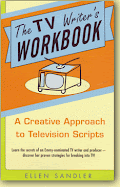



.png)



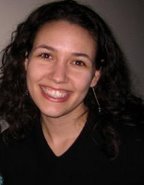
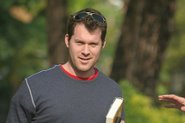

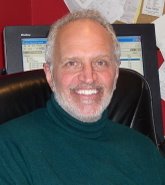
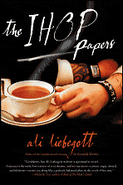
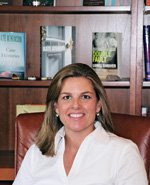
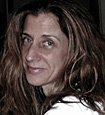
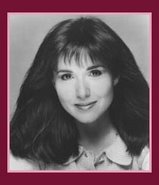
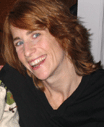





No comments:
Post a Comment